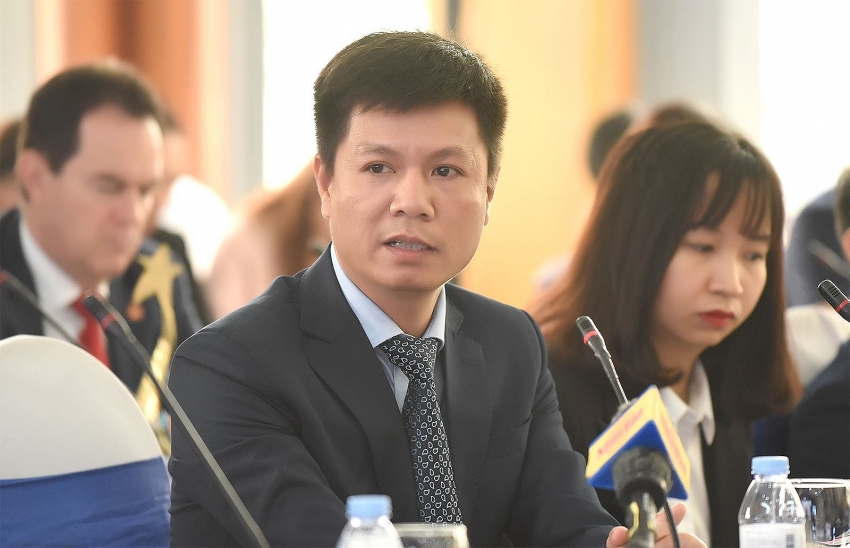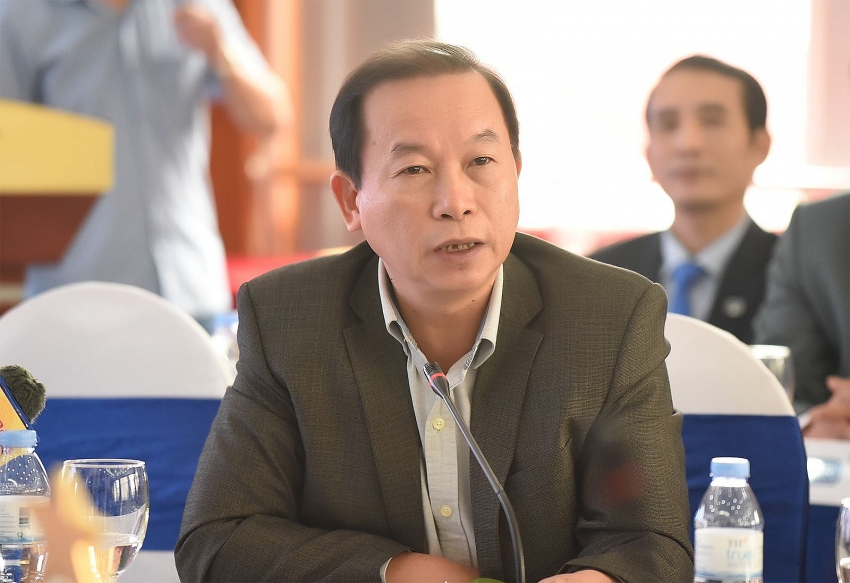
Seminar on real estate trend in 2019 at VIR headquarters.
Despite facing challenges, the real estate market in 2019 is expected to continue on an upward trend, say both experts and investors.
According to the Foreign Investment Agency under the Ministry of Planning and Investment, real estate business was the second largest business sector since early 2018, with the total registered capital of $6.5 billion in 87 newly registered projects.
Speaking at the seminar, Nguyen Hong Son, consulting director of Savills Hanoi, said that in 2019 demand will focus on buying houses and improving the quality of life. Therefore, most homebuyers will pose higher requirements to developers.

Nguyen Hong Son, consulting director of Savill Hanoi.
The value of each project no longer lies in the design, but also largely depend on how developers manage and operate the buildings. Therefore, investment in improving building management is becoming indispensable and is a new area for competition between investors.
The integration of new and smart technologies in real estate projects will affect not only the design but also the operation and management of the buildings.
The office leasing segment is also noteworthy. The land funds for offices has dried up, so the shared office/virtual office model will be the trend in 2019.
In addition, Vu Van Phan, deputy director of the Housing and Real Estate Market Management Agency under the Ministry of Construction (MoC), saidthat agency prepares reports to the government to update it on the factors affecting the real estate market so that it can make the necessary adjustments.

Vu Van Phan, deputy director of the Housing and Real Estate Market Management Agency under the Ministry of Construction (MoC).
Of the real estate markets of the 63 cities and provinces, and seven regions, only Hanoi, Ho Chi Minh City, and some other provinces with type 1 or higher urban centres are active, while the countryside or small cities have yet to really develop.
The MoC will support investors, but it is necessary to control the process so that in the future, there will be no problems in managing real estate, especially in resort projects.
"I suppose that in 2019, with the economy forecast to be stable, the real estate market will continue to grow steadily, but focus segments depend on the demand and the location,” Phan said.
In the upcoming time, as foreign investors participate in growing numbers, the demand will be larger but will focus on certain localities.
As there are more foreign businesses with good experience and strong finances, the market will become more active. Thus, domestic businesses need to create strategies to take advantage of this opportunity and develop their own brand.
“In my opinion, the land plot segment will grow the fastest. The second will be the mid-end and affordable housing segments,” Phan analysed.
Besides these observations, general secretary of Vietnam National Real Estate Association Do Viet Chien added that the location is the most important factor in each project.

Do Viet Chien, general secretary of Vietnam National Real Estate Association.
Hanoi has about 2,000 hectares of land in the west and is looking for more investors.
In the future, the NorthThang Long area will become an urban development model for other provinces to follow. Countries' economies tend to centre around airports and seaports, so selecting the location will need careful consideration. For instance, Haiphong or Quang Ninh, gathering strength from airport and seaport development, have been developing rapidly.
Nguyen Truong Thang, deputy general director of Dragon Group, shared that in smaller provinces, the demand is also smaller and customers have little experience with green and smart projects. Thus, they prefer land plots or townhouses.





















